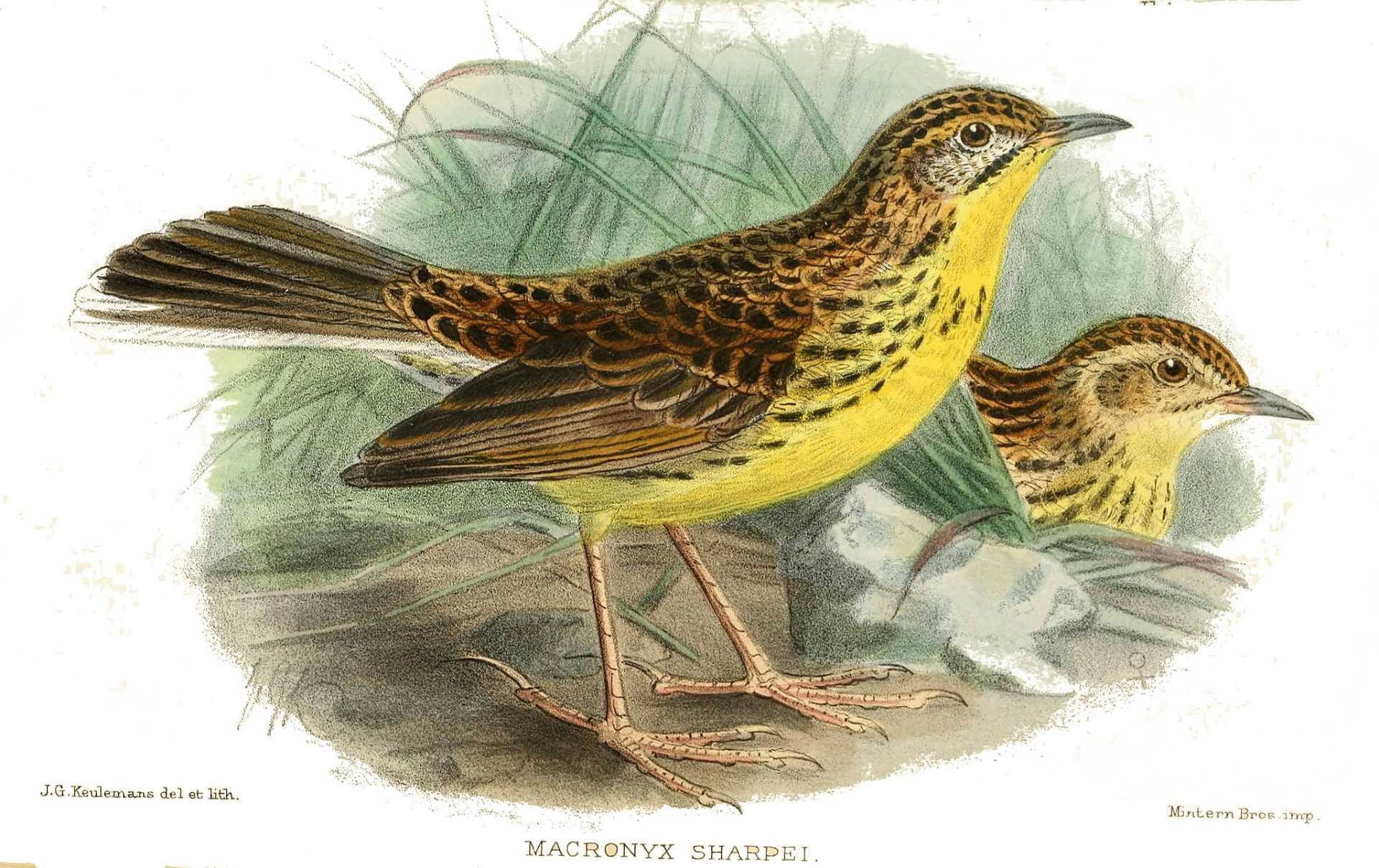Endangered Sharpe’s Longclaw preserved with the help of Kenyan farmers’ shift to new, sustainable forms of agriculture.
Due to changing economic conditions in the Kinangop Plateau in Kenya, former potato farmers are shifting to sheep rearing with benefits for themselves and the endangered bird Sharpe’s Longclaw.
Changing Tides
There are methods of tending the land that can benefit not only the farmers that work it but also the natural world that also lives there. Throughout the world, a reevaluation of farming practices has been underway due to the knowledge of how conventional farming has hurt the environment.
It also is because these conventional practices no longer benefit the farmers tending to the land.
In Kenya, this change is taking place against food insecurity for many of the population, economic struggles, and ecological damage to indigenous species. In the Kingangop Plateau, this transition from potato farming to sheep herding benefits the farmers and the indigenous bird species called Sharpe’s Longclaw.
How did this Happen?
Kinangop Plateau is a unique area of Kenya in that the region is quite cold compared to the rest of the area. It also is home to montane grassland, in comparison to savanna grassland.
During the colonial period of Kenya’s history, this area was reserved exclusively for European settlers who reared sheep and farmed the land. In 1964, when the British left, this area was given back to the Kenyan people, who then moved onto the land.
The Kingangop Plateau is an area that spans 190,000 acres, with most of the land being owned privately by farmers. However, this grassland has been rapidly disappearing due to conventional mono-crop agriculture and the planting of exotic trees such as eucalyptus.
This has resulted in a staggering drop in population for the endangered bird species Sharpe’s Longclaw, native to and only found in Kenya, specifically Kinangop.
Sharpe’s Longclaw is unique in that instead of perching on trees, they burrow into the ground in the tussock grass found in the Montane grassland. With the transformation of this grassland into cropland, it removes the habitat for this bird.
However, with economic conditions changing for the region’s farmers, there appears to be a chance for the Longclaw to thrive again.
The main issues presenting themselves to the farmers of Kinangop Plateau in potato farming are the risk of frost and seasonal glut. The potatoes are generally harvested simultaneously by all the farmers, driving the price down of potatoes to the point where the farmers barely break even.
However, with sheep rearing, the benefits significantly outweigh the costs because the wool and the meat are valued higher than the potatoes.
James Gichia, a farmer in the area, said, “Initially, sheep wool never fetched a lot of money even though there were a lot of sheep. In some cases, we would sell at 20 or 30 shillings, or sometimes one could pay a shearer with the wool; now, in a year, one can earn up to 1,000 shillings per sheep from wool alone.”
The changing economics also benefit Sharpe’s Longclaw, as sheep rearing doesn’t require changing the landscape to farmland.
Friends of Kinangop Plateau, a conservation and monitoring group operating in the area, has begun donating sheep to farmers in exchange for a pledge to preserve their grassland, which functions as a habitat for Sharpe’s Longclaw. Further, they have partnered with Nature Kenya to purchase land to preserve the grassland by establishing nature reserves.
See also: Spoonbills Recover as UK Farmers Increase Tree Cover and Wetlands.
Change Doesn’t Need to be Negative
Changing economic conditions can often harm those impacted by the change. However, in many cases, it can also present itself as a massive opportunity for those willing to move with the change.
This change from potato farming to sheep rearing can benefit the farmers and the endangered Sharpe’s Longclaw. There doesn’t need to be a contradiction between positive economic development and habitat preservation for endangered species, and this change in Kinangop Plateau could be a model for how that works going forward.
In the Dakatcha Woodland, the model of establishing nature preserves has been applied to help save the endangered birds in that area. In Taita-Taveta County, the same approach has been applied in the same way.










